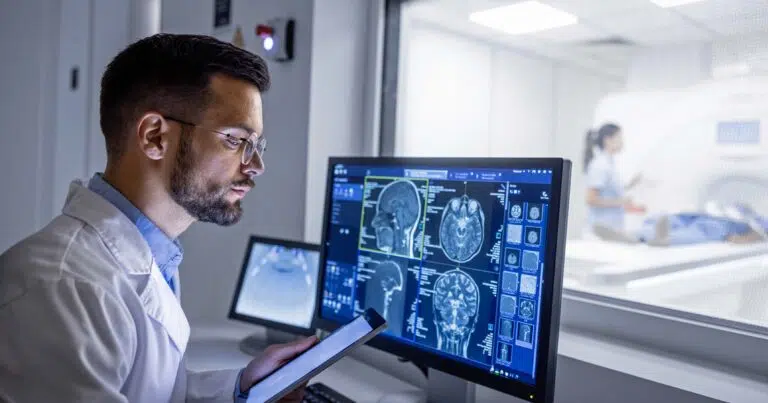MRI Tech Career Guide
Looking for a different career guide?
Overview
Magnetic Resonance Imaging (MRI) Technologists are essential members of the healthcare team who specialize in operating MRI machines to produce detailed images of internal body structures. These images help physicians diagnose and treat a wide range of medical conditions.
Essential Job Functions:
MRI Technologists prepare patients for imaging procedures, ensure their safety and comfort and operate the MRI scanner to
Education
To become an MRI Technologist, you typically need an Associate's or Bachelor's degree in Radiologic Technology or a related field. Accredited programs offer coursework in anatomy, patient care and MRI physics.
Qualifications

Skills
Staff and Travel MRI Technologists require a solid understanding of MRI technology and its safety protocols. They must possess excellent interpersonal skills to work closely with patients who may be anxious or claustrophobic during the procedure. Attention to detail and strong communication skills are also crucial.
Responsibilities
MRI Technologists ensure patient safety, operate MRI equipment, position patients accurately and monitor the procedure. They communicate with patients to alleviate concerns and collaborate with the medical team to produce high-quality diagnostic images.
Salary Insights
The average salary for a MRI Tech is $2,530.74 per week.
Last updated on December 12, 2024. Based on active jobs on Vivian.com.
Pros & Cons
Becoming an MRI Technologist offers several advantages, including competitive salaries, job stability and the opportunity to work in various healthcare settings, such as hospitals, diagnostic centers and outpatient clinics. The job also provides a sense of fulfillment by contributing to accurate disease diagnosis and patient care.
However, there are potential challenges. MRI Technologists may need to work irregular hours, including nights
Some of the content on this page was enhanced using artificial intelligence.
Join over 1 million healthcare workers that are getting a head start with Vivian.
Join Vivian





